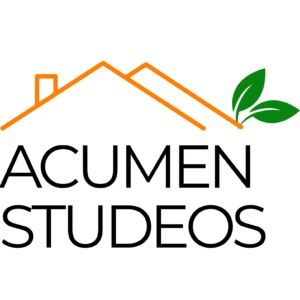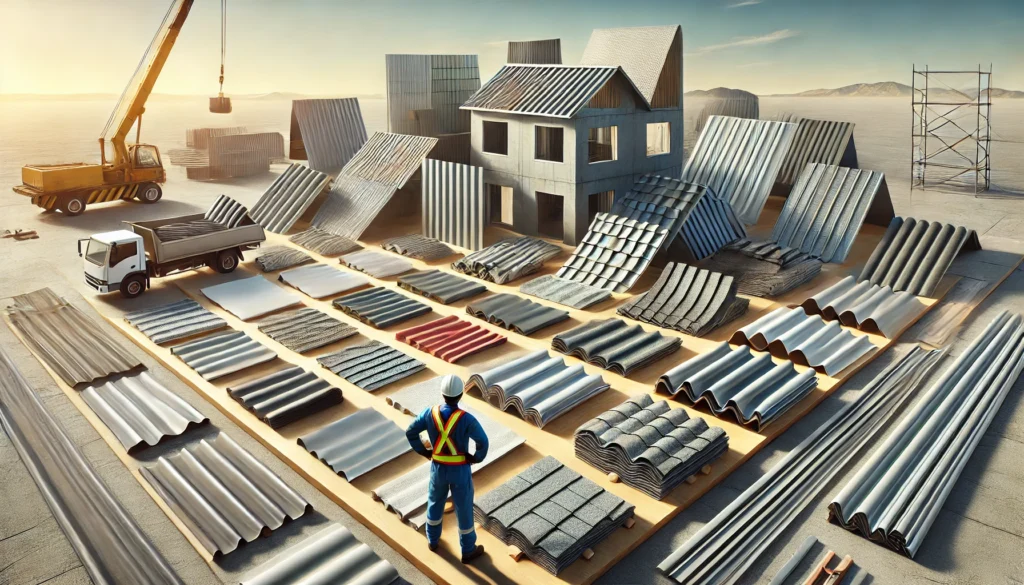Choosing the right roofing sheet is crucial in building houses across Nigeria, where climate, durability, aesthetics, and cost all play a vital role. Roofing Sheets not only protect houses but also enhance their beauty and aesthetic value. There are various types of roofing sheets made with different materials like iron, zinc, aluminium, etc. These roofing sheets vary in size, quality, and durability. Roofing sheets are one of the most important materials used for building houses, and they have high demand in the market. In this article, we will explore the types of roofing sheets in Nigeria and how to choose the best for your building project.
TYPES OF ROOFING SHEETS
1. Aluminium roofing sheet
Craftsmen make aluminium roofing materials primarily from aluminium, a lightweight and corrosion-resistant metal. These materials are among the most widely used roofing options in Nigeria. Known for their durability and low maintenance, aluminium roofing suits various types of buildings. They are suitable for areas with high humidity or rainfall.
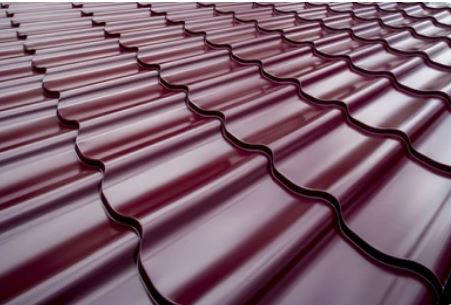
Pros of Aluminium roofing sheets
- Aluminium sheets are lightweight, making them easier to handle, requiring less effort and manpower for on-site installation, and allowing for quicker setup. This helps you save labour, costs, time, and money.
- Aluminium has corrosion-resistant properties, so it does not corrode like other metals used in roofing. Aluminium sheets can withstand even highly corrosive environments which makes them ideal for applications in industrial areas and all other geographical locations.
- Aluminium is a long-lasting roofing sheet. The average lifespan of an aluminium roof is 50 years but has been known to last beyond 70 years.
Cons of Aluminium roofing sheets
- One main issue with aluminium roofing sheets is that they can be noisy when it rains. Each heavy droplet of rain is like the stroke of a drumstick.
- Aluminium roofing sheets are more expensive in the market.
- Aluminium roofing is prone to expansion and contraction with temperature fluctuations. Over time, this can lead to loosening or warping if the sheets aren’t properly installed with space for thermal movement.
2. Stone-Coated roofing sheets
Stone-coated roofing sheet is one of the most popular and durable roofing sheets in Nigeria. It is made from metal and steel. It is durable, lightweight, fire and rust-resistant. The stone-coated roofing sheet requires detailed woodwork before installation. They come in different designs in the semblance of wood or clay and are equally soundproof. Stone-coated roofing sheets are suitable for both residential homes and commercial buildings. The stone-coated steel roof features a thick layer of stone that permanently adheres to the surface, providing a decorative appearance.
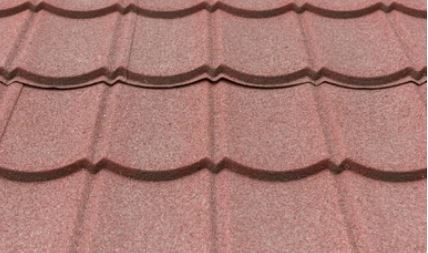
pros of stone-coated roofing sheets
- Stone-coated roofing sheets can last long if properly installed. Their service life is 40-70 years. It is a major investment in the long-term development of houses.
- Stone-coated steel can withstand gusts or heavy rain and many other adverse weather conditions. Although many people consider it to be a heavy material, the metal roof is very light, weighing 50 to 150 pounds per square.
- Stone-coated sheet has a variety of colours, textures, and designs to meet the needs of almost any style of home. This makes you feel good about the safety and appearance of the roof.
Cons of stone-coated roofing sheets
- One of the main drawbacks of stone-coated steel roofing is the initial cost. It’s typically more expensive than other roofing sheets like asphalt shingles. However, remember that its longevity and durability may offset this cost over time.
- Stone-coated sheets are heavier than some other roofing materials due to the additional stone layer. This weight may require a stronger roof structure, which can increase construction costs if additional support is needed.
3. Asphalt shingles roofing sheets
Asphalt shingles roofing sheets are made of asphalt or fibreglass. They are lightweight, waterproof, affordable, and easy to install. They come in different colours and designs and are a common choice in residential roofing.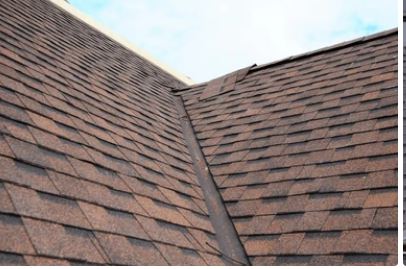
Pros of Asphalt shingles roofing sheets
- Out of all the roofing materials that are available, asphalt shingles are one of the most affordable choices, making them a good option for homeowners on a budget.
- They are so light and easy to cut, they are easy to install. Very little work is needed, and no special tools are required. This means that it won’t take as long to install an asphalt shingle roof as it might if you’re using another roofing material.
Cons of Asphalt shingles roofing sheets
- Due to their lightness, asphalt shingles crack more easily, especially when exposed to extreme temperature fluctuations. Extreme temperature fluctuations can cause shingles to expand and contract, resulting in cracks. Extreme heat can also cause asphalt shingles to crack.
- It’s generally not a good idea to install asphalt shingles during the winter, especially if temperatures are below freezing. This can cause the shingles to become damaged during installation.
- Asphalt shingles don’t last long because they are lighter, cheaper, and more prone to damage.
4. Swiss roofing sheets
Swiss roofing sheets are less common in Nigeria due to their high cost. Buyers choose these sheets for their aesthetic value and longevity, as they sit at the higher end of the market. Made from high-quality galvanized steel, these sheets offer an impressive lifespan of over 50 years. They stand strong against rain, sun, and wind. It’s more expensive than the other roofing sheets.
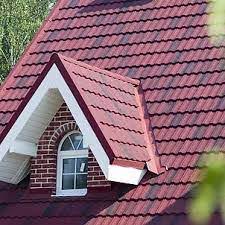
Pros of Swiss roofing sheets
- Swiss roofing sheets require minimal upkeep due to their rust resistance and durable stone coating, which protects against corrosion, fading, and damage from environmental elements.
- Swiss roofing sheets last for many years and withstand tough weather, including heavy rain, strong winds, and intense sunlight. This durability makes them a dependable choice for long-term roofing.
Cons of Swiss roofing sheets
- Swiss roofing sheets are generally more expensive than other roofing materials, such as zinc or aluminium sheets. The price can be a limiting factor for homeowners with a low budget.
- Skilled labour and precision ensure proper alignment and secure installation of Swiss roofing sheets. Incorrect installation can lead to issues like leakage or poor insulation.
5. Fibreglass roofing sheets
Fiberglass roofing sheets are made from fiberglass-reinforced plastic. They are common in agricultural and industrial settings. Fiberglass roofing sheets are lightweight, durable, and resistant to corrosion. The main phenomenon behind using fibreglass roofing is its versatile structures and different colours and styles.
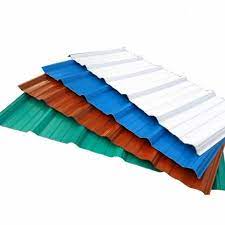
Pros of fiberglass roofing sheets
- The fibreglass roofing sheet is fire-resistant. It helps protect the house from wind, rainfall, storms etc. There is less possibility of water drainage and leakage if maintained in a proper manner.
- Fiberglass roofing is light in weight as compared to other roofing sheets. A fibreglass roof is light and has different and fascinating styles on it.
- Fiberglass roofing materials cost less and are readily available on the market, making installation cheaper compared to other roofing methods. Contractors can easily fix it, saving time during the installation process.
Cons of fibreglass roofing sheets
- Maintenance of fibreglass roofing is not easy because it will need proper guidance and appropriate materials to fill in the cracks that have occurred due to any unwanted weather. The lifespan of fibreglass roofing is not more than thirty years because they are made up of glass elements.
- Rain can make fibreglass noisy unless you install additional insulation or soundproofing measures.
6. Steel roofing sheet
Steel roofing sheets are commonly used metal roofing sheets. One of the major advantages of using steel is that they are lightweight and easy to install compared to other conventional roofing sheets. They are durable in various weather conditions.

Pros of steel roofing sheets
- Metal roofs also excel at protecting against harsh weather conditions, whether it’s heavy snow, torrential rains, or high winds, metal roofing sheets can withstand the elements, providing unmatched protection for your home.
-
One of the most significant advantages of steel roofing is its durability: steel roofs are known to last anywhere from 40 to 70 years.
Cons of steel roofing sheets
- Steel roofs can be noisier than other types of roofing, particularly during rain or hailstorms.
- Sheet roofing materials can expand and shrink with temperature changes, which may cause them to loosen or warp over time if not properly installed.
FACTORS TO CONSIDER WHEN CHOOSING ROOFING SHEET FOR YOUR BUILDING PROJECT.
When you select the right roofing sheet for your building, you must consider several factors, such as cost, durability, climate, and aesthetic preferences. The types of roofing sheets available in the market today offer different advantages and disadvantages depending on these criteria. For instance, if your primary concern is durability, steel roofing or stone-coated roofing may be the best option, as they can last for decades with minimal maintenance. If you are looking for an affordable and visually appealing solution, asphalt shingles offer flexibility in design.
Cost is always a critical factor in roofing decisions. Aluminium, stone-coated, and Swiss are more expensive. They offer significant long-term savings due to their durability and low maintenance requirements. Asphalt shingles, though cheaper initially, may incur higher costs over time due to more frequent replacements and repairs.
Climate consideration plays a major role in choosing roofing materials. Steel sheets, for example, are excellent for regions that experience heavy rainfall or snow, as they provide superior water resistance and durability. However, in warmer climates, asphalt shingles may be more suitable, especially when insulation is not a top priority. Understanding how different materials perform under various weather conditions can help prevent damage and ensure the longevity of the roof. Designers create each type of roofing sheet with different weather challenges in mind, so you must choose wisely.
The installation process is an important factor to consider when choosing roofing sheets. Lightweight materials such as steel and asphalt shingles are easier to install, which can reduce labour costs and project timelines. Understanding the installation requirements of each type of roofing sheet will help you plan and budget accordingly for your construction project.
Conclusion
Selecting the right roofing sheet for your building involves balancing factors such as cost, durability, climate, and aesthetic preferences. Each type of roofing sheet has unique features, advantages, and limitations, from the cost-effective asphalt shingles to the highly durable stone-coated and Swiss roofing sheets. By considering these factors and exploring the various materials available, you can ensure that your roof not only enhances the appearance of your building but also provides long-lasting protection against the elements.
